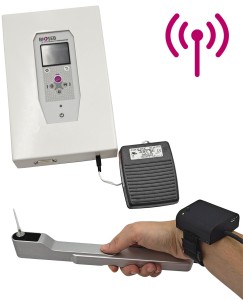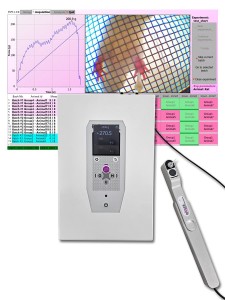Authors
Ding TT, Xu XX, Cao Y, Liu CR, Gan YH, Xie QF
Lab
Department of Prosthodontics, Peking University School and Hospital of Stomatology, Beijing, China.
Journal
Eur J Pain.
Abstract
BACKGROUND:
Patients with an orofacial pain history appear to be more susceptible to occlusal interference pain in dental practice for unknown reasons. Pain memory has a critical function in subsequent pain perception. This study aims to explore whether orofacial pain memory could affect the masticatory muscle pain perception for occlusal interference.
METHODS:
Cross-injection of 2% carrageenan into bilateral masseters in male rats was carried out to establish the inflammatory pain memory model. The effects of pain memory on masseter muscle nociception were tested by applying crowns with heights beyond the occlusal plane by 0.2 or 0.4 mm onto a maxillary molar 2 weeks after inflammation in the right masseter. The 0.4-mm crowns were removed on day 2 or day 4 after application to further confirm the effects of pain memory. Moreover, memory impairment was established using ibotenic acid (IBO) infusion into the bilateral hippocampus, followed by behaviour tests, including the Morris water maze test and the locomotor activity test. The relationship between pain memory and occlusal interference-induced masseter muscle pain perception was subsequently re-examined. The head withdrawal thresholds of masseters on both sides were measured to reflect the perception.
RESULTS:
Inflammatory pain memory aggravated the 0.2-mm crown-induced mechanical hyperalgesia of the masseters, but not in the 0.4-mm crown group. However, the recovery of the 0.4-mm crown-induced mechanical hyperalgesia was postponed. The effects of pain memory were reversed in rats with impaired mnemonic function of the hippocampus.
CONCLUSIONS:
Inflammatory pain memory facilitated occlusal interference-induced masseter muscle pain.
BIOSEB Instruments Used
Electronic Von Frey 4 (BIO-EVF4),Electronic Von Frey 5 with embedded camera (BIO-EVF5)
Keywords/Topics
Inflammatory pain; Orofacial pain; Pain
Source :

 Pain - Thermal Allodynia / Hyperalgesia
Pain - Thermal Allodynia / Hyperalgesia Pain - Spontaneous Pain - Postural Deficit
Pain - Spontaneous Pain - Postural Deficit Pain - Mechanical Allodynia / Hyperalgesia
Pain - Mechanical Allodynia / Hyperalgesia Learning/Memory - Attention - Addiction
Learning/Memory - Attention - Addiction Physiology & Respiratory Research
Physiology & Respiratory Research











![Dynamic Weight Bearing 2.0 – Postural Module [Add-on]](https://bioseb.com/733-home_default/dynamic-weight-bearing-20-add-on-postural-module.jpg)
























 Pain
Pain Central Nervous System (CNS)
Central Nervous System (CNS) Neurodegeneration
Neurodegeneration Sensory system
Sensory system Motor control
Motor control Mood Disorders
Mood Disorders Other disorders
Other disorders Muscular system
Muscular system Joints
Joints Metabolism
Metabolism Cross-disciplinary subjects
Cross-disciplinary subjects CONFERENCES & MEETINGS
CONFERENCES & MEETINGS 
